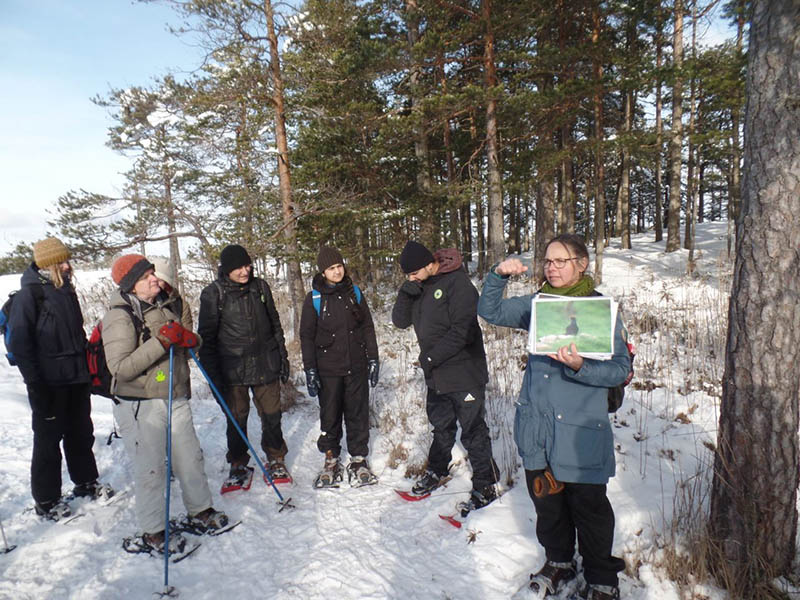
Nature-Based Integration: Building Taskscapes Together in Swedish Nature
We’re a diverse group: between us we hail from four continents and our languages include Somali, English, Spanish and Swahili. We’re one of several subgroups that have been enjoying the extremely changeable Swedish summer weather on the second day of a course in ‘nature interpretation’, which aims to teach us to lead others into nature. We’re currently learning by participating in a vocabulary-building game in a forest not far from the small Swedish town of Nora. Scattered around this area of coniferous trees, roots and rocks are various cards, each of which has a number and a Swedish word upon it. These cards have been hidden high and low and we must search for particular ones based on a throw of a die. Upon finding the card we must speak together to ensure we all understand the word. We must then go to one of the organisers and explain what the word meant before rolling again. It’s fun – different groups are scrabbling about the place yelling to one another when they find the card they seek. I’m a little concerned that we’re not really all getting as much out of it as we could, and a couple of my teammates are fairly competitive and rushing around with little concern that everyone understands. One Somali woman, in particular, is much older and less fit than the rest of us with a much smaller Swedish vocabulary. I’m unconvinced she’s fully following along. Our next word is ‘bark’ (same word in both English and Swedish) and we gather to explain it to the organiser. As she struggles to make herself clear in Swedish, another teammate pulls a piece of bark from a nearby tree and presents it to the nonplussed guide. We roll the die and continue with a laugh. (read more...)
